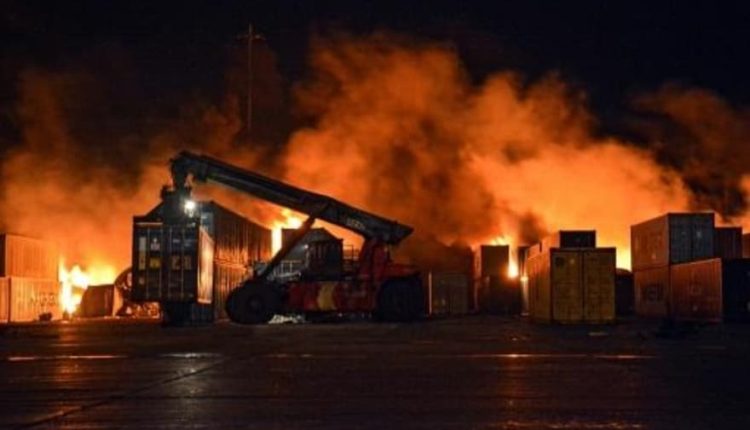Israeli Airstrikes in Syria Target Military Sites Near Latakia Amid Rising Tensions
By Kardo Roj
LATAKIA, Syria (North Press) – Israeli warplanes carried out multiple airstrikes early Thursday, targeting sites near the Syrian coastal city of Latakia. The attacks reportedly hit weapons depots and military positions, according to local sources and state media.
The strikes, which occurred near the White Port area and the Ras Shamra naval base, mark another escalation in Israel’s ongoing military operations inside Syria. While the Syrian government has not officially commented on the incident, preliminary reports indicate no confirmed casualties.
Israeli Justification for the Attacks
Mordechai Kedar, an Israeli researcher and lecturer, told North Press that Israel only conducts operations against perceived threats originating from Syrian territory.
“Israel has no interest in attacking Syria itself,” Kedar stated. “These strikes are aimed at neutralizing threats, whether from the new Syrian regime or from terrorist organizations operating within its borders.”
He further claimed that Israel seeks a stable and prosperous Syria, suggesting that if the country were to pursue “true peace” with Israel, relations could improve. However, no official Israeli statement has directly addressed the latest attacks.
Israel has conducted numerous airstrikes in Syria over the past decade, frequently targeting Iranian-linked militias and weapons shipments allegedly bound for Hezbollah in Lebanon. While Israel rarely acknowledges its operations, it has consistently stated that it will not allow Iran to establish a military foothold in Syria.
The Syrian government and its allies have repeatedly condemned these strikes, calling them violations of Syrian sovereignty. Damascus has also accused Israel of escalating tensions in the region through its military interventions.
The latest strikes come amid ongoing geopolitical tensions in the Middle East, with Syria remaining a key battleground for competing regional interests. The Syrian Democratic Forces (SDF), which control large parts of northeast Syria, have also faced security challenges due to ongoing threats from both Turkish-backed factions and ISIS sleeper cells.
While the SDF and the Autonomous Administration of North and East Syria (AANES) have not been directly involved in this latest development, the broader instability in Syria continues to impact governance and security dynamics across the country.
As regional actors assess the consequences of Israel’s latest strikes, the long-standing conflict in Syria remains deeply entangled in wider geopolitical rivalries, with no clear resolution in sight.

